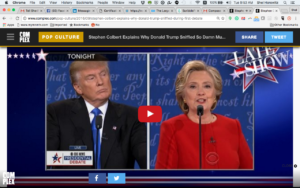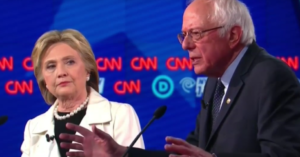Yes, David Plouffe Is Wrong, But…
One of the strongest local economy advocates I know is Michael Schuman, who publishes the Main Street Journal. Today, he took on the US president’s attempts to strongarm voters and rig the election. And then he noted that David Plouffe, a key advisor in Obama’s successful “out of nowhere”run for the presidency in 2008, has said that demographically, he can’t win.
Schuman says the way to defeat Plouffee’s defeatism is to get half a million Democrats to move to states where T narrowly squeaked by in 2024. North and South Dakota, Wyoming, and Montana all went GOP by less than 150,000 votes. These states are contiguous with each other—so, if that shift happened, we’d have an entire new liberal REGION bordering progressive Minnesota on the east and with only a thin strip of the Idaho Panhandle separating it from progressive Washington to the northwest. And it’s worth remembering that as recently as 1979, George McGovern—probably still the most progressive major-party presidential candidate in my lifetime—was the more conservative senator from South Dakota.
I agree that Plouffe is wrong. And so are all those pundits who keep howling at us that the Dems need to move way to the right.
But I’m not convinced that Michael Schuman’s solution is the way to get there. First, it’s going to be very hard to find those half million people willing to start their lives over for a hope of shifting their new state blue. Second, it’s going to be even harder to coordinate that effort so that just enough people land in the right districts in each of the swingable states. Third, there’s no guarantee it will work. Republicans would get wind of it and work much harder to get their base out or to recruit new residents of their own.
Fourth, and most importantly, a new culture doesn’t easily impose itself on an already established culture. I am a New York City native living in a rural area, on a working dairy farm in Massachusetts. My neighbors have 600 cows. New YorkCity values and lifestyles won’t work here. You want to build quality relationships with your neighbors, and that doesn’t happen by storming in, taking over, and stomping on the opinions and values of your neighbors. I seasoned for 17 years in a small college town and learned to be “bicultural” before I made the big move to the farm. If the existing communities feel disrespected, there will be no progress.
Here’s what I suggest instead: The Dems could finally figure out how to talk about real issues that working people care about without negating the social equity and environmental justice pieces. They need a lot more candidates like AOC, Bernie, and Mamdani, who’ve shown that we can move mountains if we organize where people are, and we don’t need to sacrifice the justice agenda to do it.








